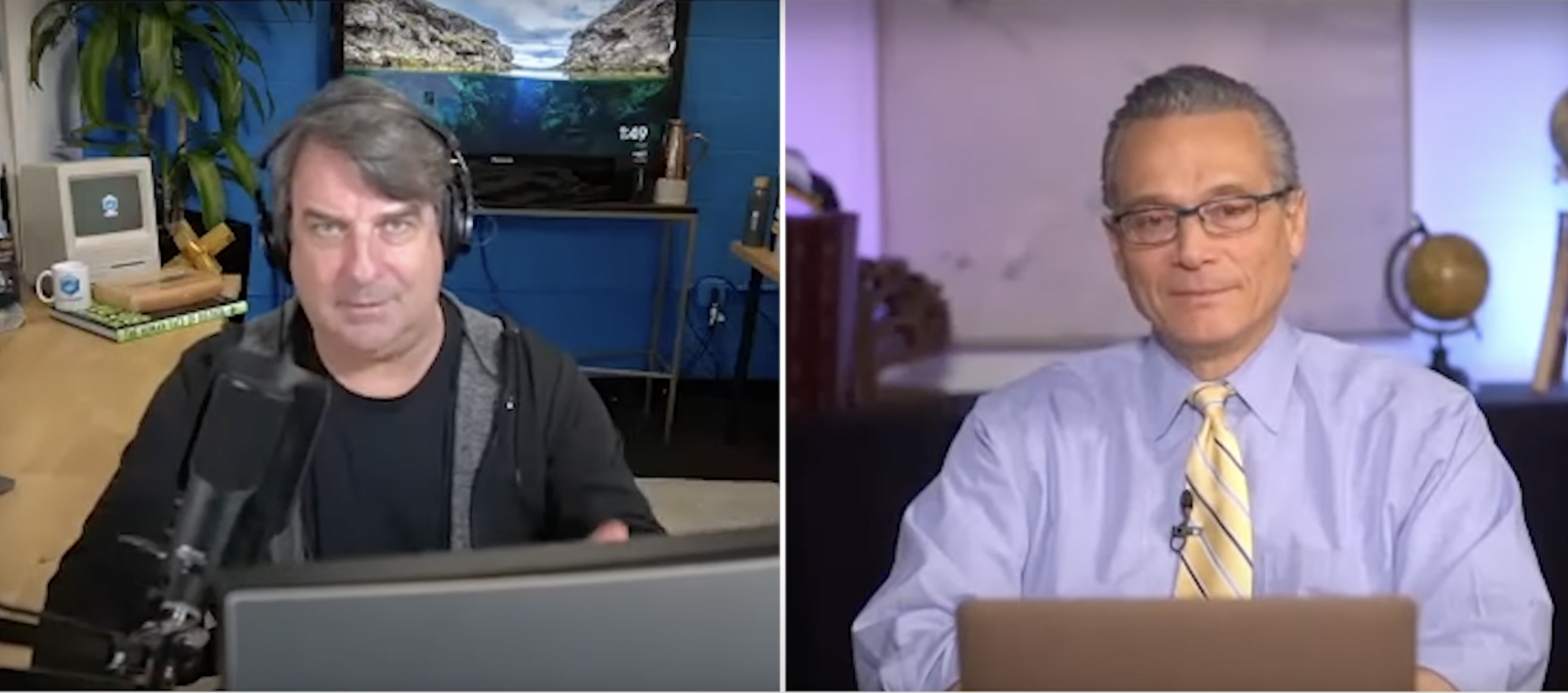 AI
AI
 AI
AI
 AI
AI
U.S. lawmakers last week had the rare chance to question Shou Zi Chew, chief executive of TikTok, about the video app’s relationship with its Chinese owner, ByteDance Ltd. The criticism came from both sides of the political aisle.
“Research has found that TikTok’s algorithms recommend videos to teens that create and exacerbate feelings of emotional distress, including videos promoting suicide, self-harm and eating disorders,” said New Jersey Democratic Rep. Frank Pallone. “Your platform should be banned,” added Washington Republican Rep. Cathy McMorris Rodgers.
On last Friday’s episode of theCUBE Podcast, industry analyst John Furrier (pictured, left) said Chew received a barrage of criticism for the platform’s perceived impacts on the U.S. population.
“You know, a real core issue is TikTok is a bad app for our country, because the Chinese are getting data from there,” Furrier said. “And people in the know are knowing it’s … the dumbing down of our people in these algorithms that support that.”
The solution is simple, in Furrier’s view: Take the company public, put it in the U.S., have someone overlook the code and make sure the Chinese do not run it. The problem, in the view of theCUBE industry analyst Dave Vellante (right), is that Congress can’t agree on anything.
“Unless it’s sort of this anti-China, who’s tougher on China [mentality], that was front and center. You know, I’m not sure individuals are really at risk. But I’m more concerned about the aggregate data,” Vellante said. “They could look at the big picture and inject unrest into society based on that data.”
The apparent ignorance of U.S. lawmakers’ knowledge of how the internet works was also a subject of Friday’s podcast, with Vellante specifically highlighting Representative Richard Hudson questioning Chew on how Wi-Fi connectivity works.
“It’s almost embarrassing, and anyone watching under the age of 30 has to look at these people and say, ‘Who elected these people?’ It really is a disgrace,” Furrier said. “You know, I’ve got to say, we have a lot of lawmakers that have law degrees; we’ve got to start pivoting over to tech degrees.”
But on whether or not TikTok should be shut down?
“I’d like to see competition. I actually would not like to see TikTok shut down,” Vellante said. “But I think they should do what maybe China would do — force the company to be owned by the U.S. Maybe, like I said, spin it out, at least 51% to a U.S.-based entity that controls the board and the company. I would be OK with that.”
Advances in generative artificial intelligence are coming fast and furious recently, and the past week was no different. This week on the podcast, Furrier cited recent developments with ChatGPT rival Bard, as well as with Databricks Inc.
“What’s happening now, people are looking at it going, ‘I gotta refactor my business with AI.’ If not, they’re gonna be dinosaurs,” Furrier said.
To make this point further, Furrier referenced the 2011 sports film “Moneyball,” which centered around the 2002 Oakland Athletics baseball team and General Manager Billy Beane.
“The [Red Sox] owner says, the first guys through the wall are bloody, but if every company is not rebuilding their business, their bullpen based on your model, the Moneyball’ model, they’re going to be extinct,” he said. “A couple of years later, the Red Sox won the World Series because they adopted it.”
What the Red Sox did, Vellante said, is apply the “Moneyball” theory to their upper-tier players.
“I would describe it like this: From 1996 to 2000, the hype was the potential of Metcalfe’s law,” Vellante said. “But you didn’t have the scale economies, which is why Pets.com, for instance, failed. They didn’t have the scale.”
Though Pets.com had a billion-dollar valuation, Chewy Inc. had a $14-billion valuation in 2019 with basically the same idea.
“You’ve got Metcalfe’s law in place, you’ve got the cloud, you’ve got all this technology, you’ve got security, which is sort of a two-edged sword here. My thinking, John, is that the cycle is going to be accelerated or the cycle is going to be compressed,” Vellante said.
The big wildcard, according to Vellante, is the era of free money.
“We’ve lived in a decade of basically zero interest rates and quantitative easing, and that’s ending,” he said.
That was just some of the conversation on last Friday’s episode of theCUBE podcast. If you’re a listener, let Furrier and Vellante know on Twitter what subjects you’d like to hear discussed in the next episode.
THANK YOU